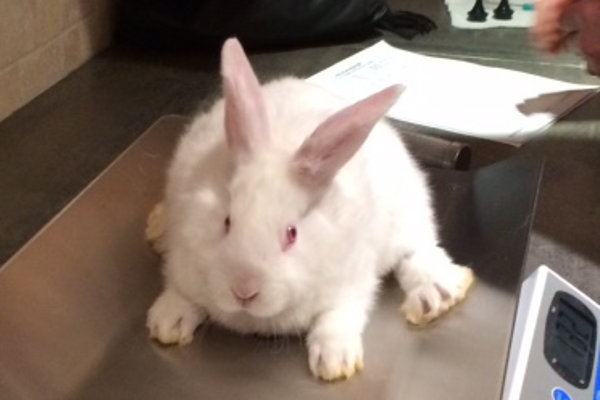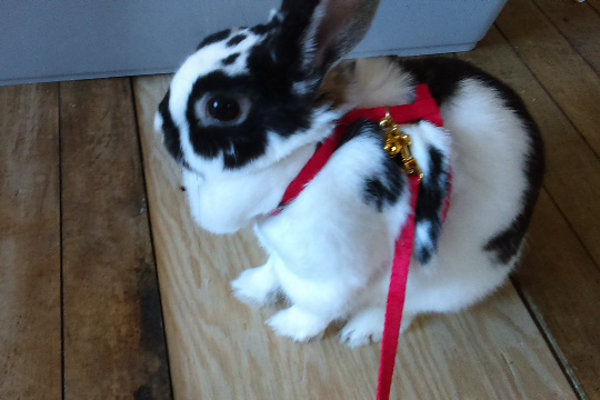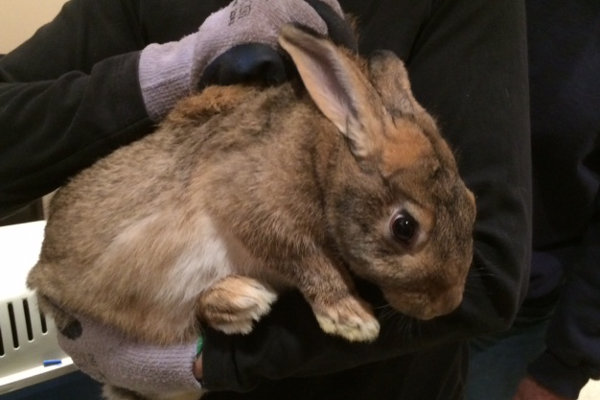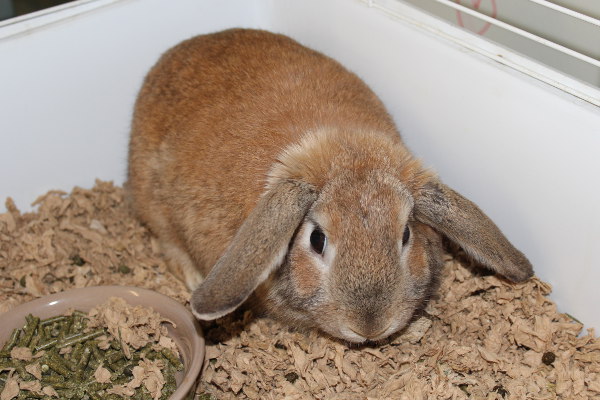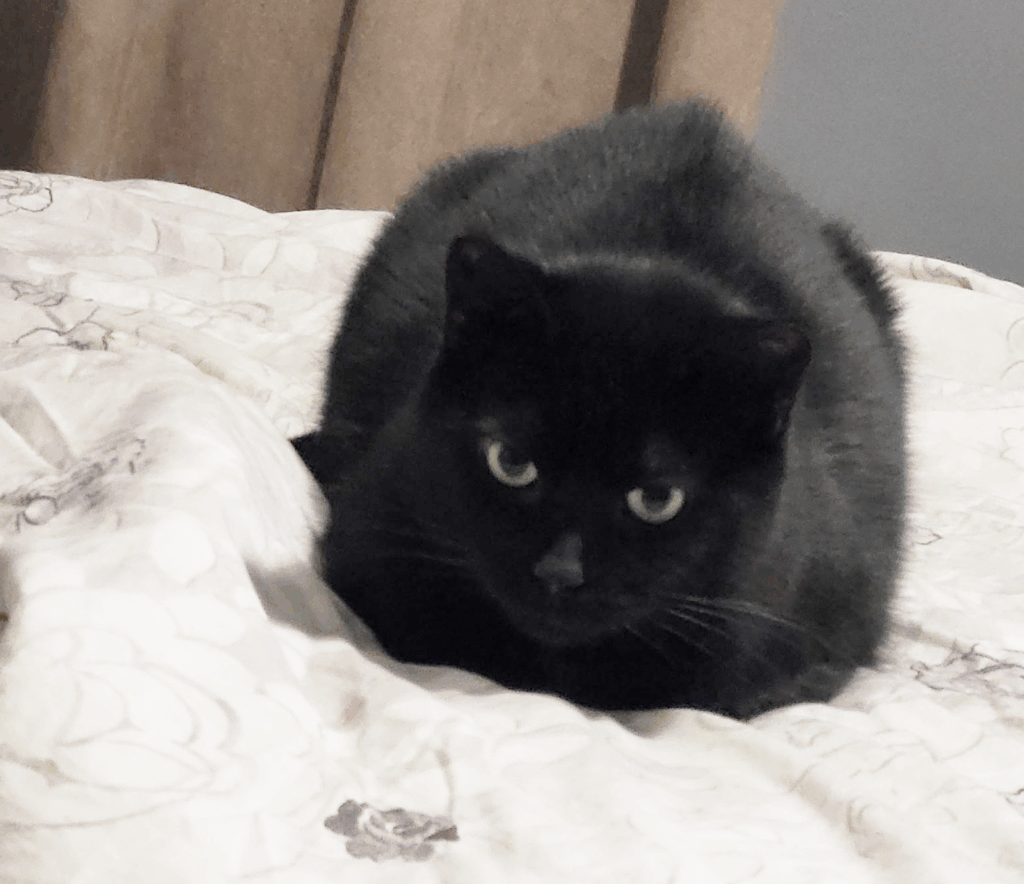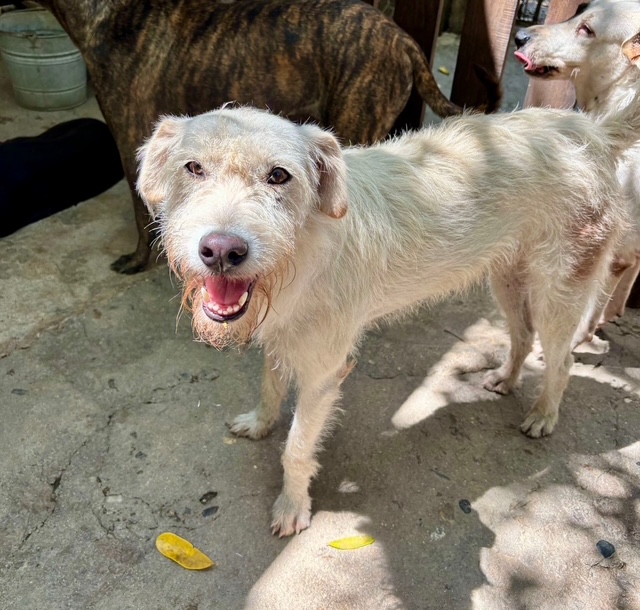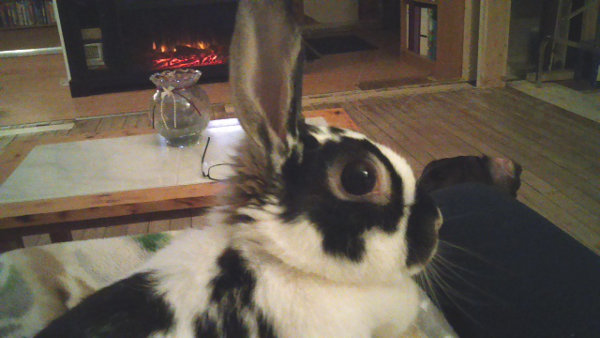
Contributed by an Oasis Animal Rescue supporter:
Parents considering giving a bunny to their children for Easter, may first appreciate some tips for catering to a pet bunny’s specific needs, health and happiness. Here is some useful information to help you decide if a bunny is the right pet for your home.
First of all, please spay or neuter your rabbit. It helps prevent some diseases, also makes them much better pets and relieves most of their territorial issues. It is imperative to find a rabbit-knowledgeable vet, for example bunnies cannot go without eating before surgery, also some dog and cat medications are not appropriate for a bunny and they cannot take penicillin by mouth. A rabbit-savvy vet will know these things.
Contrary to belief, bunnies aren’t always the best pet choice for a household with young children. Loud noises, running around, handling, & carrying can very easily traumatize a poor bunny. Parents must be willing to supervise and teach proper care & handling. Never pick up a rabbit by the back of the neck or ears but always support their bums. Other pets in the house, such as cats and dogs, can traumatize as well. A well-cared for bunny can live 10 / 12 years, larger breeds may live less.
Housing must be adequate, bunnies must be able to stretch up and out and to hop at least 3x the length of their cage or an enclosed pen when full grown. They need to be able to get out of the house with you to run and jump. They need the ability to exercise at least 4-5 hours a day… as they would be doing in the wild. Like a cat or dog, a bunny shouldn’t be confined to a cage it’s whole life.
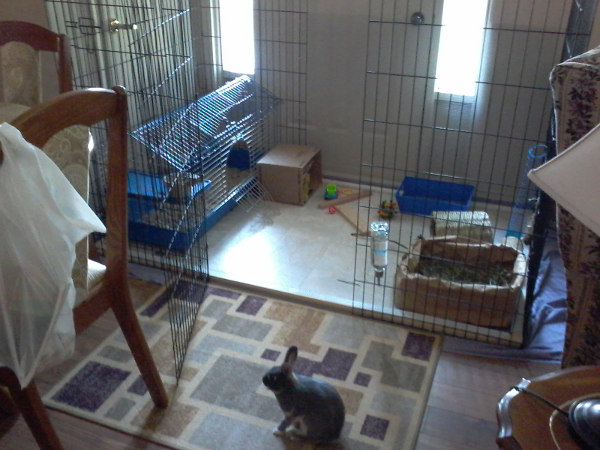
Bunnies can be very destructive and their teeth grow their whole lives. They love electrical cord & cables. Please bunny-proof carefully as they can squeeze in anywhere. Find suitable chews and toys for your bunny. Some things they like include, plain cardboard boxes with an entrance and exit hole and with shredded paper to play, hide & chew. Phone books to shed, tear & chew, toilet rolls with hay and bits of veg stuffed in it to demolish and untreated safe woods. I’m very lucky, my bunny isn’t destructive, touch wood, I’m touching my head lol. I have lots of things for him and I change them up … BOREDOM BUSTERS.
Litter training is very easy, box must be large enough, cat boxes are good. Litter should be rabbit safe, unscented, 100% recycled paper pellets. I use Yesterdays News Cat Litter, (other types of cat litter can be harmful). Rabbits are very clean, they will go in one area. Put the box with some litter in it and while training, when he pees or poops on the floor, clean it up with paper towel or if he goes on newspaper take some of the wet paper & put it in a corner of the box under the litter. He’ll smell it & return, confining to a smallish area of the house or having more than one box in the beginning will help. As your rabbit becomes better trained you can expand the area & reduce boxes. Be patient & give him lots of praise, babies are a little daft, they get smarter with age, like us!!!
For bedding I don’t like cedar or pine chips, as they aren’t healthy for them & they are rough to sleep on, I prefer 100% recycled paper, I like Care Fresh it’s safe & soft, bunnies can get sore feet and hocks if not cared for. They should never be on a grate floor, bad for feet & hocks.
Bunnies eat their morning poops, it looks like poop to us but it’s very healthy and normal for them, so don’t panic when you see this.
If your bunny is biting or scratching you, it could mean their hormones are building, making them grouchy. That’s why spaying or neutering is so important. It could also mean their diet is amiss, or they could be bored or need more exercise. Take the time to find out, just like your child, they need love and care.
Bunny tummies are delicate, alfalfa hay to one year old then slowly switch to timothy hay. This makes up most of their daily diet and should be available at all times. Pellets should not have all the little fancy bits in it as it is not healthy. I like Little Friends Alfalfa Pellets up to a one year old, Little Friends Timothy Pellets after, it also has an ingredient in it to help with urine smell. Measure pellets according to their weight. Lastly, give a wide variety of bunny-suitable veggies as part of their daily diet. Avoid iceberg lettuce as it has no nutritional value and limit carrots, bananas or other fruits as they are high in sugar. Make any changes to their diet slowly as they will have upset tummy & diarrhea if you don’t, and please, don’t forget fresh water available always, bunnies will not eat if they can’t drink.
Treats, 90% of them are junk food, better to use their daily veggies. Some hand feeding will help in the bonding process as well. Measure veg according to their weight.
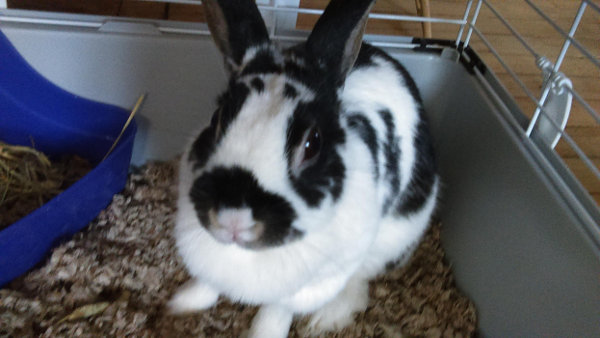
Bonding with you is a slow process, bunnies need time to trust you. Sit on the floor quietly & let them come to you, very few bunnies are cuddly and they generally don’t like to be picked up. Give them time to explore you and their new environment quietly, then gently stroke their head in the direction of the fur, but wait until they are calm. When they are more comfortable with you, they will bump your hand with their heads, asking to be petted, pay attention to when they have had enough and stop.
Bunnies generally are awake and most active mornings & evenings. They like to sleep away the afternoon… which can work well with school & work schedules.
Groom your bunny daily with a soft brush, their skin is sensitive so go easy. Groom more often when shedding, long-haired bunnies need more attention as their fur mats. Go slow and let them become accustomed to it. They generally never need a bath, if there is a dirty spot, wipe only that spot. Their nails need to be trimmed every 2 months as well.
Bonding!!! Do not put two adult rabbits together until you have researched this and feel confident of the proper way to do it.
Heat!!! Bunnies don’t like to be to hot, about 18c is pretty good. Fans shouldn’t be pointed directly at a bunny. Covered cold water bottles & ice in their water will help, or an air conditioner. Their ears help regulate body temp. If they feel too warm, find safe ways to cool them down. In the winter you don’t want their ears or body cold and hay or blankets in their bed will help.
Lastly good luck & enjoy your bunny. Give him lots of praise, make him a part of your family, not something in a cage, forgotten in a corner.
Submitted by Judy, a devoted, long-time owner of a happy, healthy bunny.
Further reading/info:
The Book: “The House Rabbit Handbook, Living With An Urban Rabbit”.
Internet Help: happyhoppers.forumotion.co.uk. It’s a wonderful chat and info set, with lots of experienced in raising happy, healthy fluffballs.
House rabbit society rabbit.org is also a good resource.
———————————————-
